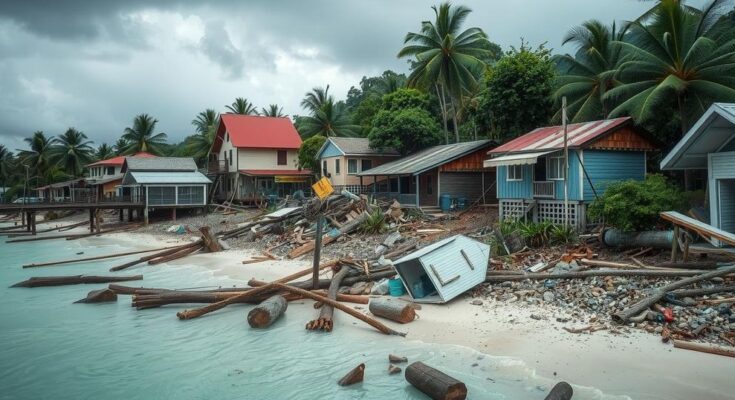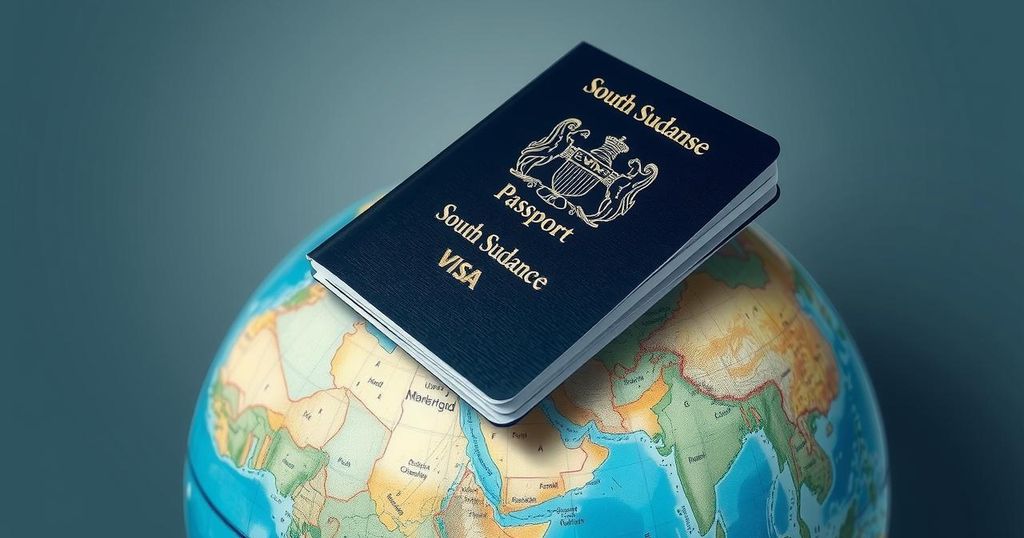Cyclone Chido devastated Mayotte, with residents likening the destruction to that of an atomic bomb. The storm resulted in catastrophic damage, especially in informal settlements, leaving hundreds to thousands feared dead. Recovery efforts are ongoing but heavily hindered by destroyed infrastructure and inaccessible areas, particularly among undocumented migrant communities. Emergency aid is being mobilized to address the crisis, with expectations for a prolonged recovery process.
A significant natural disaster has impacted the French territory of Mayotte, as Cyclone Chido, categorized as a level 4 storm, struck on December 15. Witnesses described the scene as catastrophic, with local hotel owner Bruno Garcia stating, “It’s as if an atomic bomb fell on Mayotte.” The cyclone, which winds approached 220 kilometers per hour, resulted in widespread destruction, flattening neighborhoods, disrupting essential services, and overwhelming the emergency response system. Mayotte, located in the Indian Ocean, sustained severe damage as the cyclone was deemed the worst in over 90 years, leading to tragic casualties believed to be in the hundreds or even thousands, as reported by local officials.
Recovery efforts are hampered by extensive crumbling infrastructure, particularly amongst informal settlements housing many undocumented migrants. Political representatives estimate that approximately two-thirds of the island remains inaccessible for rescue operations. The humanitarian situation is exacerbated by ongoing social issues related to the island’s migrant population and underfunded urban areas, which are most affected by such disasters. France has mobilized military and emergency personnel to assist in recovery, marking a critical moment for the island and its inhabitants as they begin to confront the aftermath of Cyclone Chido.
The cyclone that struck Mayotte is part of a series of increasingly severe weather events driven by climate change. Cyclones are intense storms that cause deadly winds, water damage, and massive disruption, typically forming in warm ocean regions. Mayotte is particularly vulnerable due to its geographical location in the Indian Ocean, making it susceptible to extreme weather patterns. The island, with a population of over 300,000, faces socioeconomic challenges, including high unemployment rates and a deepening migration crisis, as many residents are undocumented immigrants seeking better opportunities. This disaster showcases the urgent need for improved infrastructure and responsiveness to climate challenges.
Cyclone Chido’s aftermath reflects the devastating impact of extreme weather events driven by climate change, particularly on vulnerable communities. The overwhelming destruction, coupled with the island’s pre-existing socioeconomic struggles, underscores the challenge of aiding affected populations. As recovery efforts face significant hurdles, it is crucial for both local and international agencies to assess needs, deliver aid, and reconstruct resilient systems for the future.
Original Source: www.accuweather.com




